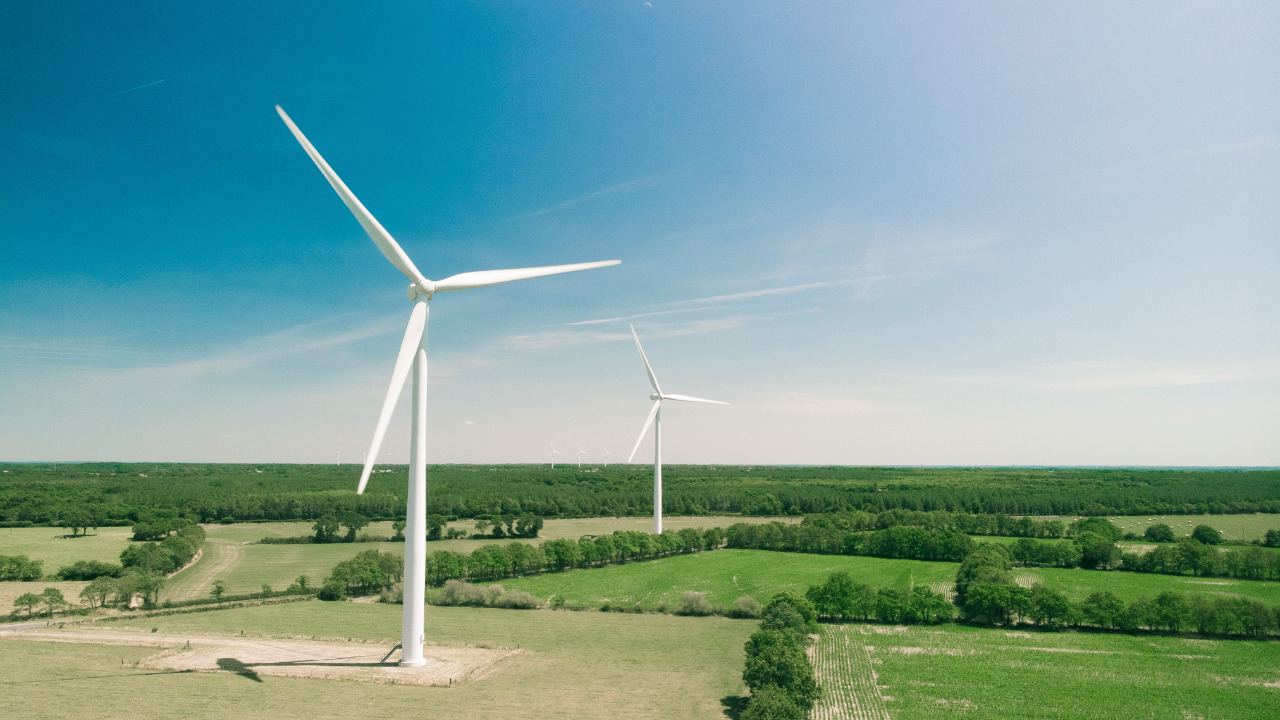Reducing greenhouse gas emissions is necessary
In the 10-year perspective, greenhouse gas emissions should be cut by half, and reach net zero around 2050. The global community has set this goal, but to be successful, every country must take this commitment seriously, including Poland. The Interdisciplinary Advisory Team for the Climate Crisis to the President of the Polish Academy of Sciences writes about it in its communiqué on the decarbonization of the power sector in Poland.

Photo: Unnamed road, 44580 Bourgneuf en Retz, France, Thomas Reaubourg, Unsplash.
As widely accepted research findings show, in order to avoid the most dramatic effects of human-induced climate change, the use of fossil fuels must be radically reduced. This challenge is also facing Poland. We are responsible not only for the future generations of Poles but also for our civilization. Poland is also bound by its international obligations, which include reducing greenhouse gas emissions by half by 2030, and reaching net zero in the next 30 years.
Decarbonization of the economy must apply to all its branches. In the case of Poland, the most urgent task is to decarbonize power sector, which has the largest (45%) share in greenhouse gas emissions (the EU average is 29%). The transformation of the energy industry must, however, take into account the energy security of the country and its citizens. Not only the concern for the climate makes Poland abandon the use of fossil fuels in the energy sector, but also other economic reasons such as high electricity prices (one of the highest in the region) and limited coal resources. The decarbonization of the power sector must take place faster than suggested by the government document PEP2040. It imposes incomprehensible restrictions on the rapid development of onshore wind farms and photovoltaic power plants. Moreover, it is necessary to intensify activities encouraging energy efficiency.
Scientists note that the energy transformation in Poland should take into account all emission-free energy sources, both renewable and nuclear energy. They indicate that the construction of offshore wind farms should be accelerated, and call for unblocking and supporting the development of the cheapest energy source – onshore wind farms.
As the production of electricity from wind and solar may experience sudden fluctuations, it is necessary to invest in balancing energy and energy storage systems. Such sources include gas-fired peaking plants (with the possibility of co-firing hydrogen), battery storage facilities, as well as the possibility of maintaining some of the latest coal-fired power plants as reserves. In order to utilize surplus energy from RES, the energy system should be gradually equipped with electrolysers for the production of hydrogen, which can then be used as fuel.
The team reminds about the necessity of constant modernization and expansion of transmission networks as well as building public support for nuclear energy.
Rapid energy transformation is an opportunity to include new entities and social groups in the process of generating energy, as well as to sustainable local development. At the same time, it will cause a lot of social tensions, especially in sectors and regions dependent on coal-based energy and mining. An important element of the transformation should be an appropriate policy encouraging the use of local opportunities for development and mitigating undesirable social impacts.
About the team
The Interdisciplinary Advisory Team for the Climate Crisis to the President of the Polish Academy of Sciences is chaired by Prof. Szymon Malinowski (University of Warsaw), with Prof. Jacek Piskozub (PAS Institute of Oceanology) acting as deputy chair, and Dr. Iwona Wagner (European Regional Center for Ecohydrology of the Polish Academy of Sciences, University of Lodz). Other members are: Prof. Irena Wrońska (Medical University of Lublin), Prof. Krzysztof Kwiatek (National Veterinary Research Institute), Dr. Adam Habuda (PAS Institute of Law Studies), Dr. Krzysztof Niedziałkowski (PAS Institute of Philosophy and Sociology), Dr. Agata Goździk (PAS Institute of Geophysics), Prof. Tomasz Okruszko (Warsaw University of Life Sciences), Prof. Zbigniew Kundzewicz (PAS Institute of Agricultural and Forest Environment), Dr. Andrzej Jagodziński (PAS Institute of Dendrology), Dr. Anna Januchta-Szostak (Poznań University of Technology), Prof. Jan Kozłowski (Jagiellonian University), Prof. Jan Kiciński (PAS Institute of Fluid-Flow Machinery), Dr. Aleksandra Kardaś (University of Warsaw), Dr. Justyna Orłowska (Ministry of Climate and Environment), Dr. Mateusz Strzelecki (Polish Young Academy).
The following experts were also involved in the preparation of the communiqué:
Prof. Tadeusz Chmielniak (Silesian University of Technology), Prof. Janusz Lewandowski (Warsaw University of Technology), Prof. Czesława Rosik-Dulewska (University of Opole), and Prof. Ludwik Pieńkowski (AGH University of Science and Technology).
The full text of the communiqué is available in Polish on the PAS website.
